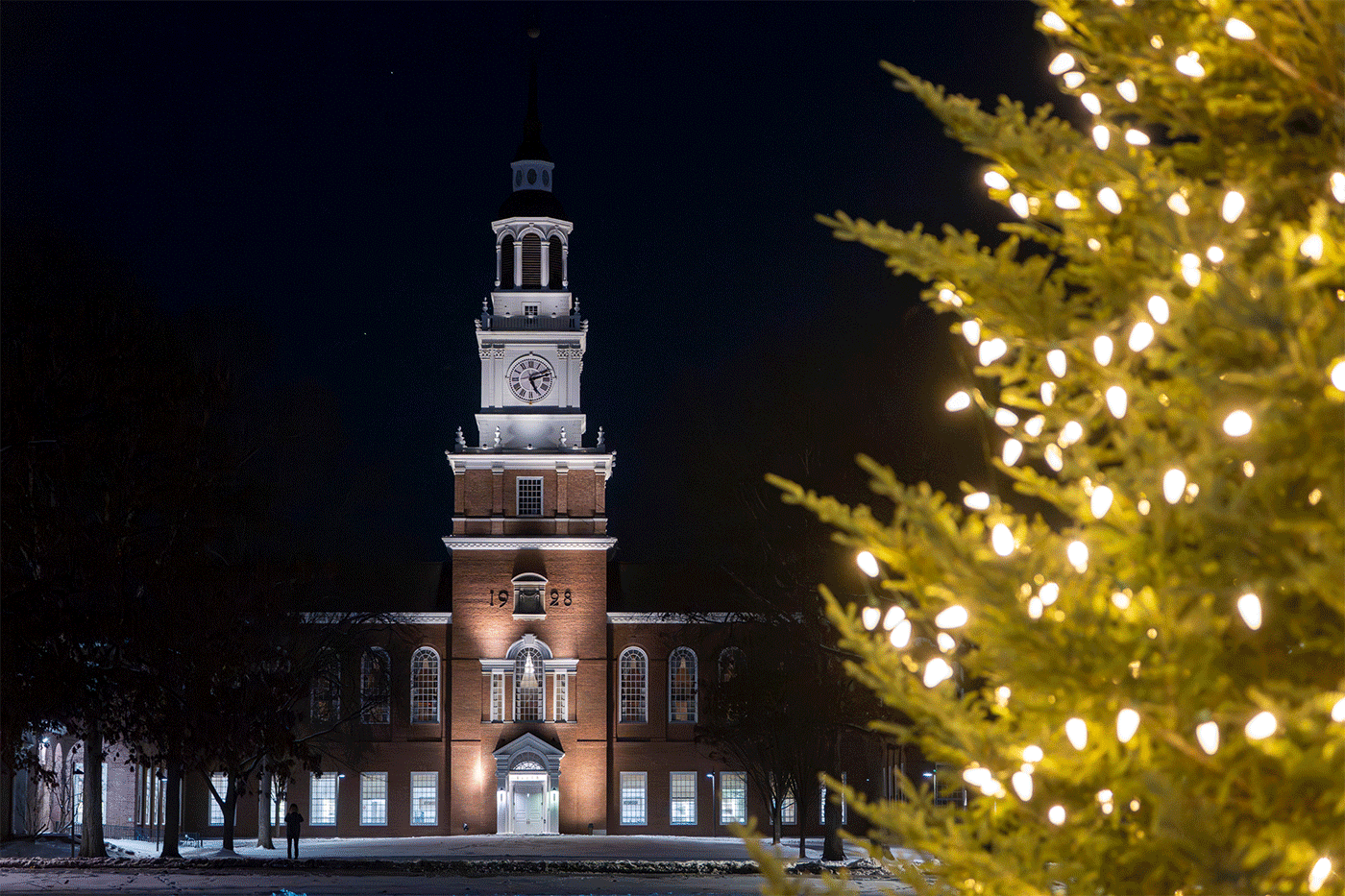What next? For Rebecca Wehrly ’06, that was the question that grew from a late-in-college call to prepare for medical school. The answer came in the form of a Olga Gruss Lewin Post-Graduate Fellowship to do community health work in rural Texas. Managed through the William Jewett Tucker Foundation, the Lewin fellowship supports students as they pursue a full-time project with a nonprofit organization in the year after their graduation from Dartmouth.

The fellowship was established in 2000 by Marina Lewin and Andrew Lewin ’81 in honor of Andrew’s mother. “What we find truly remarkable is that all of these fellowships are initiated and set up by students who took it upon themselves to go out and put their Dartmouth education to use and try and make a difference,” Andrew Lewin says. The Tucker Foundation “enables Dartmouth students ‘to pray with their feet,’” he says, quoting Abraham Joshua Heschel, Professor Susannah Heschel’s father, about marching with Dr. Martin Luther King Jr. at Selma.
Wehrly is now a graduate of Harvard Medical School in the third year of a residency in psychiatry at the University of Texas Southwestern Medical Center in Dallas.
Application DeadlineAs a Lewin Fellow she worked with the Integrated Health Outreach Systems Project in McAllen, Texas, part of the Texas A&M School of Rural Public Health’s Center for Community Health Development, at the border with Mexico. “Our goal was to use a community health development approach in which the community identifies its needs, develops goals, defines objectives, and builds capacity to improve the community’s health—and to train promotores, or community health workers, as members of these communities, to facilitate this process.”Applications for the Olga Gruss Lewin Post-Graduate Fellowship are due Feb. 15 for members of the Class of 2015.
There were times, she says, when the work was frustrating. But “ultimately, I have learned that long-standing problems require time to fix and that the challenge is to be humble (but not demoralized) and persistent.”
Those are lessons that have carried through to her medical practice, she says: “There were times when I struggled with cross-cultural communication, thinking that the promotores and I were not understanding each other; these times have taught me not to take someone’s understanding for granted, and to ask questions. I learned to remain curious. ”
After working with at-risk South Asian youth in New York City as a Lewin fellow, Sindura Kodali ’08 graduated from medical school at the University of Michigan, completed a master’s in public health at Harvard, and is now doing a residency in pediatrics at University of California, San Francisco.
Kodali calls the Lewin fellowship “one of the most important and formative experiences of my life.” It allowed her to put into practice skills she learned at Dartmouth, and directed her toward pediatrics. “My work at SAYA! has shaped almost every aspect of what I hope to do in my career. Whether it is my individual work with patients or my goals to create systemic change in the field of public health, the Lewin fellowship gave me the opportunity to start that work first-hand.” Her hope, she says, “is to continue working with children and improving access to health care by strengthening health systems in underserved communities.”
Cameron Hunter ’15 is the student director for the Lewin program at Tucker this year. The Lewin fellowship, he says, connects nonprofit organizations with impassioned, talented students who are looking to contribute. “For this reason,” he says, “there is never a cookie-cutter response as to why students are applying for the fellowship. Some are doing it because they want to be a doctor, and gaining exposure to public health has always been of interest to them. Others want to apply because their hometown community has needs that they can now address with the skills they learned at Dartmouth.” But every applicant he speaks with, Hunter says, “has seen the necessity in working for the common good, and feels strongly that their skills and passions can be used and honed by partnering with nonprofit organizations.”
That belief is at the heart of the program, and is why it fits at Tucker, Andrew Lewin says. “I have always seen the Tucker Foundation as the conscience of Dartmouth College, appealing to that which is best in ourselves. Tucker calls on us to put the advantages of our Dartmouth education, the tremendous prosperity and material resources that we enjoy as Americans, in service to those in less fortunate circumstances. ”

